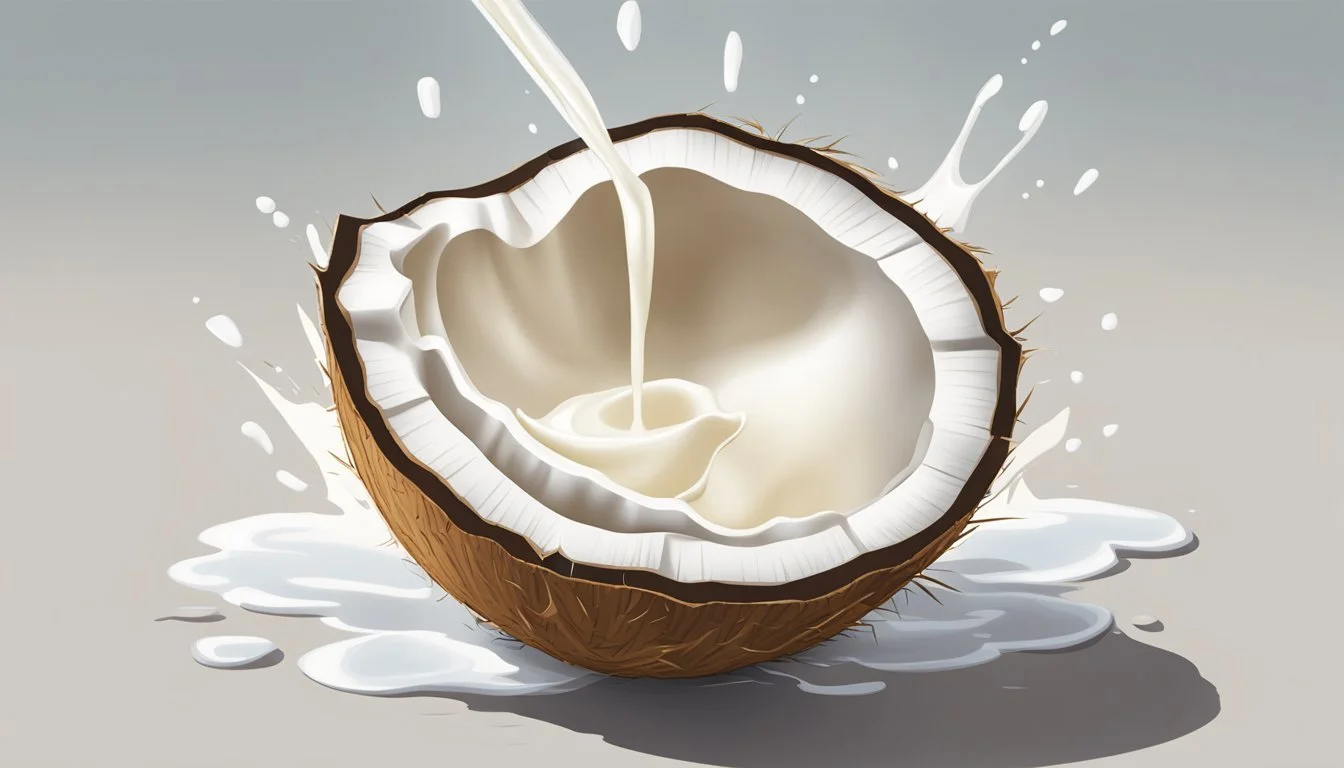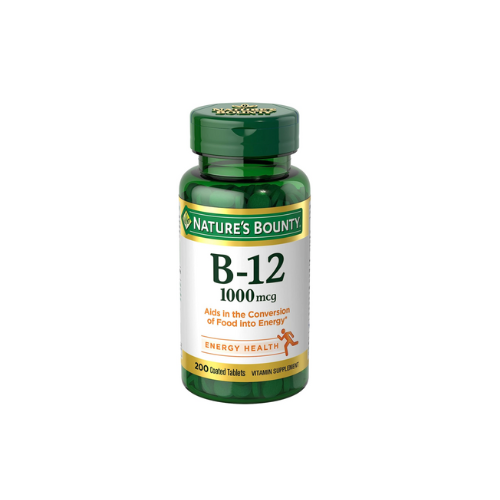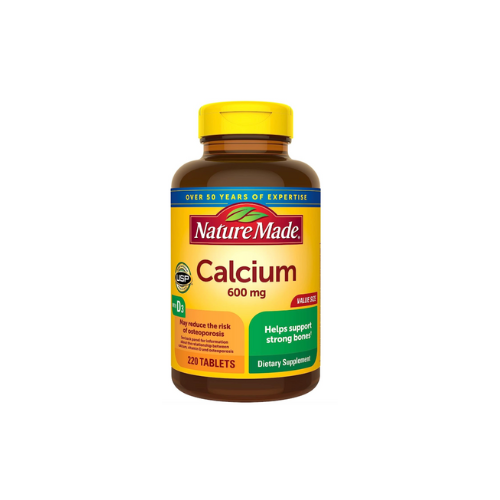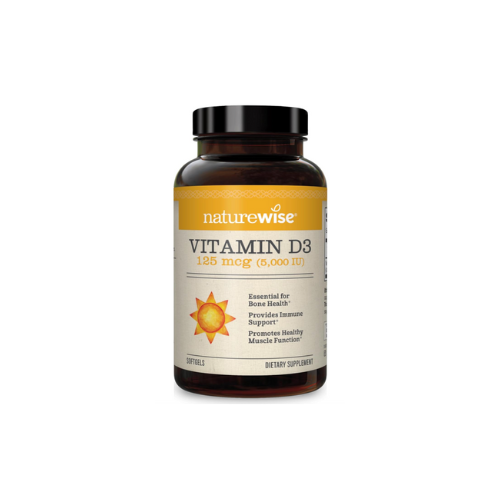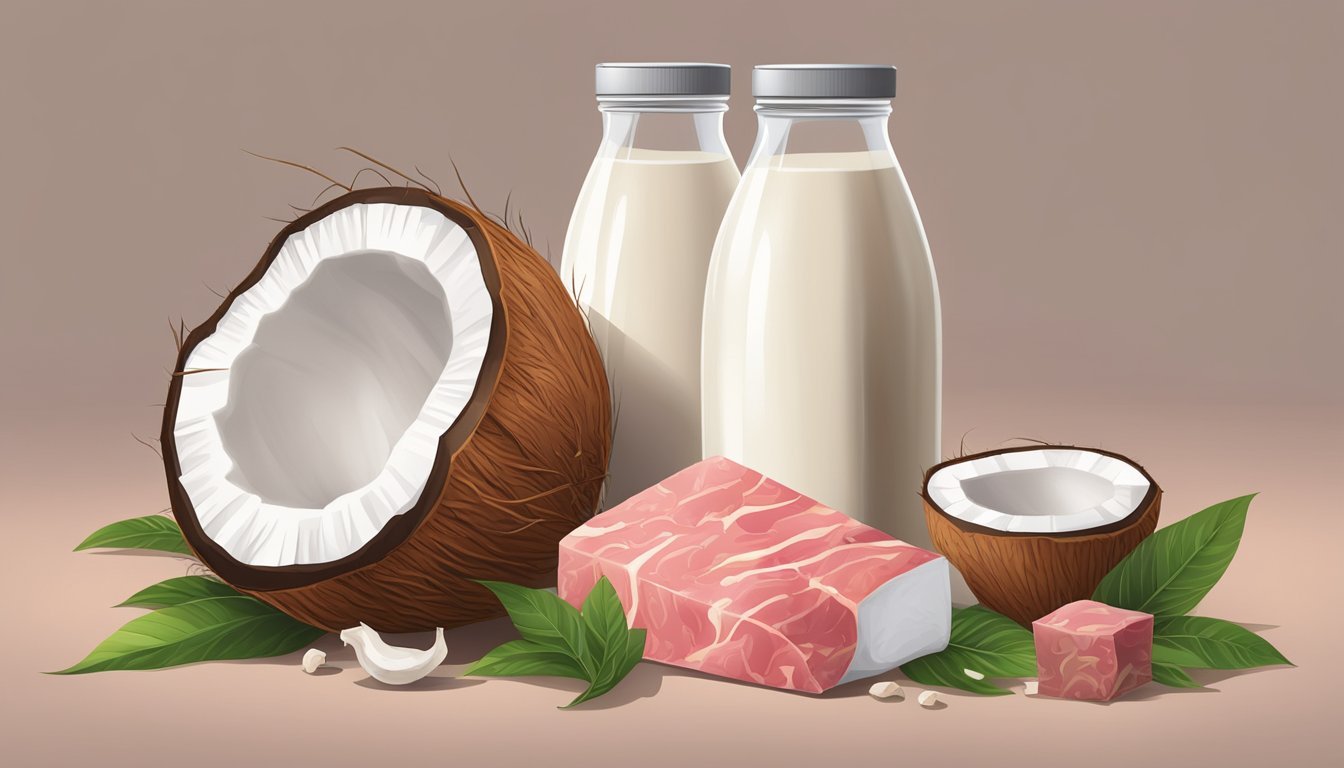Coconut Milk on Carnivore Diet
Assessing Compatibility and Benefits
The inclusion of coconut milk in a carnivore diet is a topic of interest for those exploring the boundaries of this dietary approach. The carnivore diet is primarily focused on animal-based foods, emphasizing the consumption of meat, fish, eggs, and certain dairy products. This diet excludes plant-derived nutrients with the intent of adhering to a more ancestral eating pattern, which proponents believe is beneficial for certain health outcomes.
Coconut milk, derived from the liquid that comes from the grated meat of a coconut, does not fit within the strict guidelines of the carnivore diet. It is plant-based and contains several compounds that are not in alignment with the diet's philosophy. For an individual following the carnivore diet, coconut milk would be considered a departure from the prescribed list of acceptable foods which favors those solely sourced from animals.
While the carnivore diet allows for some flexibility in the types of animal products consumed, including the optional use of dairy like milk, cheese, and heavy cream, it typically excludes plant-based products such as coconut milk. This is because the diet's focus is on high-fat, low-to-no-carb, and moderate-protein intake, which aims to minimize the consumption of sugars and carbohydrates, including the natural sugars found in coconut milk. Therefore, coconut milk is not commonly included in a traditional carnivore diet meal plan.
Carnivore Diet Fundamentals
The Carnivore Diet is a restrictive regimen emphasizing the consumption of meat and other animal products. Its focus on high-protein and high-fat foods reflects its roots in a zero-carbohydrate philosophy.
Defining the Carnivore Diet
The Carnivore Diet is strictly animal-based, eschewing all plant-based foods in favor of meat, fish, eggs, and select dairy products. Supporters of this diet argue that it provides all necessary nutrients from animal sources alone, presenting a simplistic approach to eating by eliminating food groups like grains, fruits, and vegetables.
Primary Components:
All types of meat (beef, poultry, pork)
Seafood
Organ meats (rich in vitamins and minerals)
Eggs
Dairy products (milk, cheese, heavy cream) Note: Some exclude dairy due to sugar content
Vitamins and minerals from these foods, like Vitamin D and zinc
Omega-3 fatty acids, commonly found in fish
Core Benefits
Proponents claim various health benefits from the Carnivore Diet, including weight loss, reduced inflammation, and improved mental clarity. They attribute these effects to the high intake of protein and fats, which can be satiating and provide sustained energy levels. The diet's simplicity can also reduce decision fatigue related to food choices.
Advantages:
May lead to weight loss due to reduced carbohydrate intake
High protein and fat content can be satiating
Potential for high levels of omega-3 fatty acids
Potential Risks
While some report positive outcomes, the Carnivore Diet may pose health risks due to its restrictive nature. Critics argue that the absence of plant-based foods eliminates essential dietary fibers and various antioxidants, which could impact long-term health. Additionally, the high concentration of meats and saturated fats has been linked to certain diseases, emphasizing the need for individuals to consult with healthcare professionals before starting this diet.
Risks:
Lack of dietary fiber from plant-based foods
Potential increased risk of diseases linked to high saturated fat intake
May lead to nutrient deficiencies without careful planning
Online shopping for fiber supplement is the smart choice for a seamless transaction!
Coconut Milk in Context
Coconut milk is gaining popularity as a plant-based alternative to dairy, but its place in specialized diets like the carnivore diet is contested due to its plant origins. This section examines its composition, role in hydration, and compares it with dairy alternatives.
Coconut Milk Composition
Coconut milk consists of water, fats, and other minor constituents, lacking notable amounts of protein and carbohydrates. Unlike dairy milk that contains lactose, casein, and whey proteins, coconut milk features a high content of saturated fats and a unique blend of vitamins and minerals such as iron, calcium, and vitamin C. Enzymes are also present in coconut milk, albeit in smaller amounts compared to dairy.
Nutrient Comparison: Coconut Milk vs. Dairy Milk
Primary Fat
Coconut Milk: Saturated fat
Dairy Milk: Saturated fat (in whole milk), Variable fats (in skim, 2%)
Protein
Coconut Milk: Trace amounts
Dairy Milk: Casein, Whey
Sugar
Coconut Milk: None (naturally occurring)
Dairy Milk: Lactose
Vitamins/Minerals
Coconut Milk: Vitamin C, Iron, Calcium
Dairy Milk: Vitamin D (fortified), Calcium
The Role in Hydration
Coconut milk is often considered a hydration aid due to its water content and electrolytes, like potassium, which it naturally contains. These electrolytes can help replenish the body's minerals lost through sweat. However, its contribution to hydration is different from plain water or mineral-rich beverages recommended on a carnivore diet, which emphasize staying hydrated without carbohydrates.
Coconut Milk vs. Dairy Alternatives
Coconut milk stands apart from dairy and other non-dairy alternatives such as almond milk and heavy cream. Nutritionally, dairy products provide a different profile, being rich in protein, especially casein and whey, and contain the sugar lactose, which is absent in coconut milk. Whole milk and heavy cream are known for their calcium content and presence of dairy fats, while almond milk is lower in calories and fats than both coconut and dairy milk, but also lower in proteins.
Alternative Protein Sources and Their Suitability for a Carnivore Diet
Coconut Milk
Lactose: Low
Fats: High
Suitable for Carnivore Diet: Controversial (plant-based)
Almond Milk
Lactose: Very Low
Fats: Lower
Suitable for Carnivore Diet: Not suitable (plant-based)
Dairy Milk
Lactose: High (also contains casein)
Fats: Varied
Suitable for Carnivore Diet: Generally accepted
Heavy Cream
Lactose: Low
Fats: High
Suitable for Carnivore Diet: Often included in moderation
While enthusiasts of the carnivore diet may include dairy for its animal origin and nutritional content, coconut milk's plant-based nature and fat composition raise questions about its suitability for the diet.
Nutritional Considerations
When considering coconut milk for a carnivore diet, it is essential to evaluate its macronutrient content and how it aligns with the diet's nutritional goals, which primarily focus on animal-based foods.
Proteins and Fats
Coconut milk provides a moderate amount of fat, but it lacks the protein that is the cornerstone of the carnivore diet. Fat content can vary depending on the type of coconut milk, but it generally does not offer the same types of fats found in animal products, particularly saturated fats and omega-3 fatty acids, which are pivotal in a carnivore diet. Animal-based foods also provide vital cholesterol, which plays a role in hormone production.
Vitamins and Minerals
Animal products are rich sources of vitamins such as B12 and D, and minerals like iron, potassium, calcium, and magnesium. Coconut milk, while containing some minerals such as potassium and magnesium, does not provide a significant amount of these nutrients when compared to animal products. Even further, it lacks vitamin B12 entirely and has lower levels of calcium and vitamin D, which are commonly found in dairy items approved on the carnivore diet.
I always prefer buying vitamin B12, calcium and vitamin D online because of the added convenience!
Carbohydrates and Sugars
Unlike the preferred foods on a carnivore diet, coconut milk contains a notable amount of carbohydrates and sugars. A standard 12 oz serving harbors close to 18 grams of sugar, which contradicts the low-to-no-carb principle of the diet. In contrast, animal products typically contain little to no carbohydrates, thereby aligning with the ketogenic aspect of the carnivore approach by minimizing carb intake to maintain a state of ketosis.
Incorporating Coconut Milk
When considering coconut milk in the context of a carnivore diet, one must understand its role and how it may affect the diet's animal-based focus.
Recipes and Preparation
Coconut milk can impart a creamy texture and rich flavor to various dishes. While not traditionally included in the carnivore diet, individuals who choose to incorporate coconut milk into their meal plans should do so with consideration of their dietary goals. It can be used as an alternative to dairy milk in recipes, but it is important to note that it does not provide the same nutritional content as animal-derived products.
For Cooking: Use coconut milk as a base for sauces or soups to add a touch of creaminess.
Combination with Meat: Enhance the flavor of meat dishes by adding coconut milk in marinating processes or as part of a curry.
Note: Coconut milk cannot be classified as an animal-based food and thus deviates from the strict carnivore diet guidelines.
Sourcing and Quality
The quality of coconut milk is pivotal for those including it in their diet. Individuals should opt for products with minimal additives to ensure they are receiving the most natural form of coconut milk.
Organic Labels: Seek out organic coconut milk to avoid pesticides and herbicides.
Ingredient Check: Examine the ingredient list for added sugars or preservatives, which are often included in lower quality products.
Nutritional Profile: Coconut milk is rich in fats but lacks the proteins and calcium found in animal-based milks. Consumers should consider this when incorporating it into their diet, especially within the framework of a carnivore diet that typically excludes plant-based products.
Health Implications
When considering the addition of coconut milk to a carnivore diet, it's essential to assess the potential health implications, particularly concerning digestive health, weight management, and the impact on inflammation and immunity.
Digestive Health
Coconut milk lacks the lactose found in dairy products, which can benefit those with lactose intolerance, reducing the risk of digestive issues such as bloating and discomfort. However, it does not contain the digestive enzymes and probiotics that are present in fermented dairy products, which may be advantageous for gut health.
Weight Management
In terms of weight management, coconut milk is high in calories and fat, which can contribute to weight gain if consumed in large quantities. On a carnivore diet, which typically supports weight loss and weight management through low-carb intake, the addition of coconut milk could modify the diet's effectiveness in helping individuals lose weight.
Inflammation and Immunity
While coconut milk has been touted for its anti-inflammatory properties, it does not contain the same nutrients and immunomodulatory factors found in animal-sourced foods. Dairy products, which are permissible on the carnivore diet, may provide components such as lactoferrin that can support the immune system. Diligent consideration is necessary to weigh these potential differences in contribution to inflammation and immunity when incorporating coconut milk into a carnivore diet.
Dietary Diversity
In the context of a carnivore diet, dietary diversity typically refers to the range and type of animal-based foods consumed. However, incorporating elements such as plant foods and electrolytes can influence the balance of macronutrients and overall hydration.
Role of Plant Foods
On a carnivore diet, plant foods like fruits and vegetables are generally excluded. They may be considered by some for their micronutrients and fiber content, but the core guideline advises against their inclusion. The carnivore diet pivots on the idea that all necessary vitamins and minerals can be obtained from animal products, eliminating plant-based foods entirely.
Balancing Macronutrients
Balancing macronutrients in the carnivore diet involves focusing on proteins, fats, and minimal carbs. Animal products like meat, fish, and eggs provide ample protein and fat, but because this diet excludes grains and plant-based sugars, carbohydrate intake is naturally restricted. Whole milk is a debated inclusion, as it contains lactose, a sugar, and may alter the diet's strict low-carb framework.
Electrolytes and Hydration
Hydration and the maintenance of electrolytes are crucial on any diet. For carnivores, water and bone broth are the primary fluids recommended. They are essential to replace electrolytes lost through the limited consumption of plant foods, which otherwise provide potassium and magnesium. Alcohol and sugary drinks are excluded as they can disrupt hydration and the balance of electrolytes.
Practical Considerations
When incorporating coconut milk into a carnivore diet, individuals need to assess its influence on meal structuring and budgetary implications, since it diverges from the standard animal product focus of the diet.
Meal Planning
In a carnivore diet, meal plans typically rotate around a variety of animal products such as beef, chicken, fish, pork, and organ meats like liver. Dairy products that may be included are items such as cheese and butter, which are entirely animal-based. Integrating coconut milk requires careful consideration as it is not derived from animals. One should ensure that its use does not heavily replace the core components of the carnivore diet—namely, meat and animal byproducts.
Meat: Forms the basis of the carnivore diet, offering a range of options from steaks to ground beef.
Seafood: Provides variety with options like salmon, shrimp, and other fish.
Organs: Nutrient-dense choices include liver, kidney, and heart.
Eggs: Serve as a versatile addition to daily meals.
Cost and Accessibility
The cost and availability of coconut milk versus traditional dairy can vary significantly. As dairy products such as milk, cheese, and heavy cream are staples in a carnivore diet, they are often bought in bulk and readily available at most grocers, potentially at lower cost.
Coconut Milk
Price: Can be higher than regular dairy products depending on location and brand.
Accessibility: Might not be as widely available in all regions, unlike dairy.
Dairy Products
Price: Generally more cost-effective, especially when purchased from budget-friendly stores.
Accessibility: Dairy items like milk and cheese are ubiquitous in grocery stores.
Expert Insights
Coconut milk often surfaces in discussions regarding the carnivore diet, primarily when evaluating the diet's strict adherence to animal-based products. It is essential to sift through expert analysis and research to understand its compatibility with the diet's principles.
Professional Perspectives
Dietitians generally hold the carnivore diet to strict standards, emphasizing a complete reliance on animal-sourced foods. In this light, coconut milk is considered incompatible as it is a plant-based product. Experts assert that for a diet to be distinctly carnivorous, consumers must focus on protein, fats, and other nutrients derived solely from animal sources. This eliminates foods such as coconut milk, which, despite its healthy fats and lack of saturated fat, does not align with the diet's animal-based protocol.
Emerging Research
The implications of coconut milk in terms of health and weight loss within a carnivore diet remain largely under-investigated. However, some studies suggest that diets high in animal fats can promote a state of ketosis, similar to that in a ketogenic diet, which may contribute to weight loss and reduced inflammation. Considering this, the addition of coconut milk, which is rich in medium-chain triglycerides (MCTs), could potentially influence ketosis. Nevertheless, current research is insubstantial in directly linking coconut milk to enhanced benefits within a carnivore diet framework.
FAQs on Coconut Milk and Carnivore Diet
In this section, the focus is on addressing common questions regarding the inclusion of coconut milk in a carnivore diet. It specifically considers the nutritional aspects and compatibility with the diet's principles.
Common Queries Responded
Is coconut milk allowed on the carnivore diet?
Coconut milk is not typically included in a carnivore diet. As the diet strictly emphasizes animal products, coconut milk, being a plant derivative, does not align with its guidelines.
What are the primary nutritional components of coconut milk?
Coconut milk is rich in fat, specifically medium-chain triglycerides (MCTs), and also contains carbohydrates and sugars. It has a creamy texture and is often used as a dairy alternative in various cuisines.
Can coconut milk help with weight loss?
While some may believe that the MCTs in coconut milk can aid in weight loss, consumption of coconut milk is not in accordance with the carnivore diet's principles, which primarily focus on animal-based foods.
Is dairy allowed on the carnivore diet?
Certain dairy products such as butter, cheese, and heavy cream are accepted on the carnivore diet due to their low lactose content; however, high-lactose products, like milk, may not be suitable for everyone following this diet.
Does coconut milk contain carbohydrates and protein?
Yes, coconut milk contains carbohydrates, including sugar, and a small amount of protein. However, its protein content is not comparable to the high-quality proteins found in animal products favored by the carnivore diet.
What about calcium intake on the carnivore diet? Can coconut milk contribute to this?
While coconut milk contains calcium, its plant-based origin makes it incompatible with the carnivore diet. Adequate calcium intake on this diet is typically ensured through the consumption of bone broth and dairy products low in lactose.

